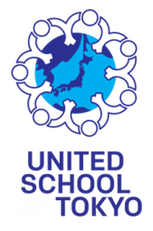STAYING INVOLVED
Parental Involvement
The research shows that children whose parents are actively involved in school show higher academic achievement and better social adjustment. The main reason for developing the school-family-community partnerships is to help children succeed at school and in later life.
UST encourages 4 types of parental involvement:
1. VOLUNTEERING: Recruit and organize parents' help and support.
2. LEARNING AT HOME: Provide information and ideas to families about how to help students at home with homework and other curriculum-related activities, decisions, and planning.
3. DECISION MAKING: Include parents in school decisions, developing parent leaders and representatives through getting involved with PTA or becoming a class-parent.
4. COLLABORATING WITH THE COMMUNITY: Identify and integrate resources and services from the community to strengthen school programs, family practices, and student learning and development. Instill social conscience in students by giving back to the community and participating in various community outreach programs.
Communication
UST promotes the following effective forms of regular and meaningful communication and cooperation:
The research shows that children whose parents are actively involved in school show higher academic achievement and better social adjustment. The main reason for developing the school-family-community partnerships is to help children succeed at school and in later life.
UST encourages 4 types of parental involvement:
1. VOLUNTEERING: Recruit and organize parents' help and support.
2. LEARNING AT HOME: Provide information and ideas to families about how to help students at home with homework and other curriculum-related activities, decisions, and planning.
3. DECISION MAKING: Include parents in school decisions, developing parent leaders and representatives through getting involved with PTA or becoming a class-parent.
4. COLLABORATING WITH THE COMMUNITY: Identify and integrate resources and services from the community to strengthen school programs, family practices, and student learning and development. Instill social conscience in students by giving back to the community and participating in various community outreach programs.
Communication
UST promotes the following effective forms of regular and meaningful communication and cooperation:
- School-to-Home: informing parents about school life and children's progress via report cards and academic progress updates; regular emails from teachers, news updates on the internal school portal; teacher blogs; information sessions for families that are new to Tokyo etc.
- Home-to-School: we encourage the parents to have an on-going dialogue with the teachers and school administration about any issues related to their child's social or academic needs, or about any aspects of school life. We value parents' feedback and encourage UST parents to be more proactive in advocating change at the school either through one-on-one communication with the administration or by serving on the PTA or as class parent.
- Student-to-Student: we encourage our students to get involved in the school, local community and international community by joining the Student Council, actively participating in our Community Outreach programs and in the friendship program with our sister-school in Cambodia
- Parent-to-Parent: we also encourage parents to communicate with each other in various ways to help us build a stronger school community (parents social events, bulletin board, class gatherings, PTA meetings)


